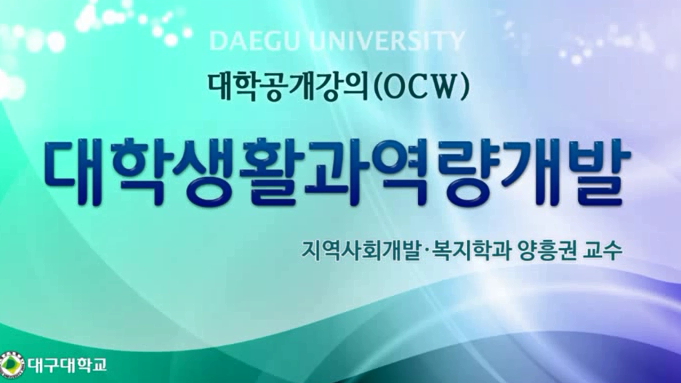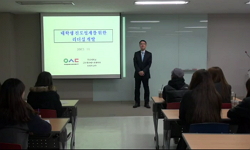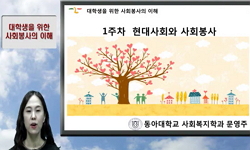먹거리 이해력(food literacy)은 개인이 식품을 소비하고 섭취하는 기능적인 능력뿐만 아니라 음식과 다른 사람과의 관계, 먹거리와 관련된 환경에 대한 관심을 모두 아우르는 개념으로 확장하...
http://chineseinput.net/에서 pinyin(병음)방식으로 중국어를 변환할 수 있습니다.
변환된 중국어를 복사하여 사용하시면 됩니다.
- 中文 을 입력하시려면 zhongwen을 입력하시고 space를누르시면됩니다.
- 北京 을 입력하시려면 beijing을 입력하시고 space를 누르시면 됩니다.
Developing and evaluating a campus-based food literacy program for university students = 대학생을 위한 먹거리 이해력 프로그램 개발 및 효과 평가
한글로보기https://www.riss.kr/link?id=T16978846
- 저자
-
발행사항
춘천 : 한림대학교 일반대학원, 2024
-
학위논문사항
학위논문(석사) -- 한림대학교 일반대학원 , 식품영양학과 식품영양학 , 2024. 2
-
발행연도
2024
-
작성언어
영어
- 주제어
-
발행국(도시)
강원특별자치도
-
형태사항
83 p. ; 26 cm
-
일반주기명
지도교수: 박소현
-
UCI식별코드
I804:42014-200000738398
- 소장기관
-
0
상세조회 -
0
다운로드
부가정보
국문 초록 (Abstract)
프로그램 개발은 2022년 1월부터 6월까지 진행하였다. 기존 먹거리 이해력 프로그램을 고찰하였으며 먹거리 이해력에 영향을 주는 요인을 타겟층인 대학생 인터뷰로 도출하였다. 이를 바탕으로 전문가 자문회의를 진행하여 초안을 개발하였다. 이후 초안에 대한 청년들의 피드백과 전문가 자문회의 재 진행으로 프로그램을 수정하였다. 마지막으로 먹거리 이해력 측정 도구와 사회인지이론을 활용하여 11주차의 최종 프로그램안을 개발하였다. 프로그램은 지역사회 자원을 최대한 활용하여 기초 단계인 조리부터 심화 단계인 생태환경과 관련된 이론과 실습 수업으로 구성하였다. 중재 기간은 2022년 8월부터 2023년 2월까지 진행하였다. 중재군 42명과 대조군 50명을 모집하였다. 프로그램의 원활한 진행을 위해 중재군에서 6명의 튜터를 사전에 모집하였고, 팀을 만들어 튜터-튜티 중심의 활동을 진행하였다. 중재군은 프로그램 참여와 사전/사후 설문지를, 대조군은 프로그램 참여 없이 사전/사후 설문지만 진행하였다. 프로그램 종료 후 일부 학생을 대상으로 사후 인터뷰를 진행하였다.
프로그램의 효과 평가는 설문조사와 인터뷰로 진행되었다. 중재군 42명과 대조군 45명이 모든 설문을 완료하였다. 100점 만점을 기준으로 중재군의 전체 영역을 합친 먹거리 이해력 점수는 평균 65.8점에서 69.6점으로 유의하게 향상하였으며(P = 0.015), 세부 영역 중 사회-생태 영역은 65.3점에서 71.5점으로 뚜렷하게 향상하였다(P < 0.001). 중재군과 대조군의 먹거리 이해력을 비교한 선형 회귀분석 결과, 지식에 해당하는 항목만 유의 수준에 근접했으며(P = 0.054), 중재 전후의 실천 측면에서는 통계적으로 유의한 차이가 없었다(P = 0.657). 이후 중재군의 사후 인터뷰 결과, 지속 가능한 식생활을 실천으로 옮기는 것이 현 상황에서는 어렵다는 한계를 보였으나 시야가 넓어지고 환경 의식과 태도가 향상되어 실천을 위한 출발선에 놓여있음을 확인할 수 있었다.
본 연구는 대학생 대상으로 대학교 캠퍼스 기반의 먹거리 이해력 프로그램을 개발 및 진행하였으며 대상자의 먹거리 이해력 세부 요소 중 사회-생태 영역과 지식 측면에 점수가 유의하게 증가한 것을 확인할 수 있었다. 또한 프로그램 참여자의 높은 만족도와 중도 탈락이 없었던 결과는 향후 캠퍼스 기반 먹거리 이해력 프로그램의 확장 가능성을 보여준다. 본 연구 결과를 바탕으로 향후 연구에서는 대학생들에게 지속 가능한 식생활의 실천과 태도 형성을 위해 지속적으로 먹거리이해력의 개념과 영역을 노출할 수 있는 교과 외 교육과정 또는 정책이 필요하다.
주제어: 먹거리이해력, 대학생, 청년, 형성연구, 혼합연구, 지속가능한 식생활
먹거리 이해력(food literacy)은 개인이 식품을 소비하고 섭취하는 기능적인 능력뿐만 아니라 음식과 다른 사람과의 관계, 먹거리와 관련된 환경에 대한 관심을 모두 아우르는 개념으로 확장하였다. 먹거리 이해력은 총 3가지 영역으로 구성되며 영양 및 안전 영역, 문화 및 관계 영역, 사회-생태 영역으로 나뉘어진다. 2021년 서울시 먹거리 통계조사 결과, 대학생이 포함된 청년층에서 먹거리 이해력 전체 지표가 가장 낮았으며 식생활 질도 다른 연령층에 비해 저조했다. 먹거리 이해력은 개인의 행복과 삶에 질에 관련되기 때문에 이를 향상시킬 방안이 필요하다. 기후변화에 대한 인식이 높아짐에 따라 대학생 개인의 식생활 질 뿐만 아니라 환경을 고려하는 지속 가능한 식생활 프로그램이 요구되고 있다. 하지만 현재 대학생이 주로 생활하는 곳인 대학교 캠퍼스는 지속 가능한 식생활에 도움을 줄 수 있는 교육 프로그램이나 환경적 지지 요소가 부족한 실정이다. 따라서 본 연구는 건강하고 지속 가능한 식생활을 위해 먹거리 이해력 개념을 활용하여 대학교 캠퍼스를 기반한 프로그램을 개발 및 시행하고, 프로그램 효과 평가를 목적으로 한다.
프로그램 개발은 2022년 1월부터 6월까지 진행하였다. 기존 먹거리 이해력 프로그램을 고찰하였으며 먹거리 이해력에 영향을 주는 요인을 타겟층인 대학생 인터뷰로 도출하였다. 이를 바탕으로 전문가 자문회의를 진행하여 초안을 개발하였다. 이후 초안에 대한 청년들의 피드백과 전문가 자문회의 재 진행으로 프로그램을 수정하였다. 마지막으로 먹거리 이해력 측정 도구와 사회인지이론을 활용하여 11주차의 최종 프로그램안을 개발하였다. 프로그램은 지역사회 자원을 최대한 활용하여 기초 단계인 조리부터 심화 단계인 생태환경과 관련된 이론과 실습 수업으로 구성하였다. 중재 기간은 2022년 8월부터 2023년 2월까지 진행하였다. 중재군 42명과 대조군 50명을 모집하였다. 프로그램의 원활한 진행을 위해 중재군에서 6명의 튜터를 사전에 모집하였고, 팀을 만들어 튜터-튜티 중심의 활동을 진행하였다. 중재군은 프로그램 참여와 사전/사후 설문지를, 대조군은 프로그램 참여 없이 사전/사후 설문지만 진행하였다. 프로그램 종료 후 일부 학생을 대상으로 사후 인터뷰를 진행하였다.
프로그램의 효과 평가는 설문조사와 인터뷰로 진행되었다. 중재군 42명과 대조군 45명이 모든 설문을 완료하였다. 100점 만점을 기준으로 중재군의 전체 영역을 합친 먹거리 이해력 점수는 평균 65.8점에서 69.6점으로 유의하게 향상하였으며(P = 0.015), 세부 영역 중 사회-생태 영역은 65.3점에서 71.5점으로 뚜렷하게 향상하였다(P < 0.001). 중재군과 대조군의 먹거리 이해력을 비교한 선형 회귀분석 결과, 지식에 해당하는 항목만 유의 수준에 근접했으며(P = 0.054), 중재 전후의 실천 측면에서는 통계적으로 유의한 차이가 없었다(P = 0.657). 이후 중재군의 사후 인터뷰 결과, 지속 가능한 식생활을 실천으로 옮기는 것이 현 상황에서는 어렵다는 한계를 보였으나 시야가 넓어지고 환경 의식과 태도가 향상되어 실천을 위한 출발선에 놓여있음을 확인할 수 있었다.
본 연구는 대학생 대상으로 대학교 캠퍼스 기반의 먹거리 이해력 프로그램을 개발 및 진행하였으며 대상자의 먹거리 이해력 세부 요소 중 사회-생태 영역과 지식 측면에 점수가 유의하게 증가한 것을 확인할 수 있었다. 또한 프로그램 참여자의 높은 만족도와 중도 탈락이 없었던 결과는 향후 캠퍼스 기반 먹거리 이해력 프로그램의 확장 가능성을 보여준다. 본 연구 결과를 바탕으로 향후 연구에서는 대학생들에게 지속 가능한 식생활의 실천과 태도 형성을 위해 지속적으로 먹거리이해력의 개념과 영역을 노출할 수 있는 교과 외 교육과정 또는 정책이 필요하다.
주제어: 먹거리이해력, 대학생, 청년, 형성연구, 혼합연구, 지속가능한 식생활
다국어 초록 (Multilingual Abstract)
Program development took place from January to June 2022. Existing FL programs were examined and factors affecting FL were identified through interviews with the target audience, university students. Based on this, an expert consultation was held to develop a draft. The program was subsequently revised based on feedback from young adults on the draft and a second round of expert consultation. Finally, the FL tool and social cognitive theory were utilized to develop the final program design for Week 11. The program consisted of theoretical and practical classes related to cooking at the basic level and ecological environment at the advanced level, making the fullest use of community resources. The arbitration period took place from August 2022 to February 2023. 42 participants in the intervention group and 50 participants in the control group were recruited. To facilitate the program, six tutors from the intervention group were recruited in advance, and teams were formed to conduct tutor-tutee-oriented activities. The intervention group received program participation and pre- and post-questionnaires, while the control group received only pre- and post-questionnaires without program participation. Following the conclusion of the program, follow-up interviews were conducted with some students.
The program's effectiveness was evaluated through surveys and interviews. 42 intervention group members and 45 control group members completed all surveys. On a 100-point scale, the intervention group's combined FL scores for all domains increased significantly from 65.8 to 69.6 on average (P = 0.015), and among the sub-domains, the socio-ecological FL increased significantly from 65.3 to 71.5(P < 0.001). A linear regression analysis comparing the FL of the intervention and control groups showed that only the knowledge component approached the significance level (P = 0.054), and there was no statistically significant difference in the practice component before and after the intervention (P = 0.657). The post-intervention interviews of the intervention group showed that although they were limited by the difficulty of translating sustainable dietary life into practice in their current situation, they had broadened their horizons and improved their environmental awareness and attitudes, which put them on the starting line for action.
This study developed and implemented a university campus-based FL program for university students, and it found that participants' scores increased significantly in the socio-ecological FL and knowledge dimensions of FL. In addition, the high satisfaction of program participants and the absence of dropouts indicate the potential for the expansion of campus-based FL programs in the future. Based on the findings of this study, future research should consider co-curricular programs or policies that can expose university students to the concepts and domains of FL on an ongoing basis to build sustainable dietary life and attitudes.
Key words: Food literacy, University students, Young adults, Formative research, Mixed-methods research, Sustainable dietary Life
Food literacy(FL) has expanded as a concept to encompass not only an individual's functional ability to consume and eat food, but also their relationship to food, to others, and to the environment in relation to food generally. FL is organized into th...
Food literacy(FL) has expanded as a concept to encompass not only an individual's functional ability to consume and eat food, but also their relationship to food, to others, and to the environment in relation to food generally. FL is organized into three domains: nutrition and safety FL, cultural and relational FL, and socio-ecological FL. According to the 2021 Seoul Food Survey, young adults, including university students, had the lowest overall FL index, and their dietary life quality was also lower than those of other age groups. Since FL is linked to individual happiness and quality of life, it is necessary to find ways to improve it. As awareness of climate change increases, there is a need for sustainable food programs that consider not only the quality of the individual university student’s dietary life, but also the environment. However, university campuses, where the majority of students reside, currently lack educational programs and environmental support factors that can help with sustainable dietary life. Therefore, the purpose of this study is to develop and implement a university campus-based program utilizing FL concepts for healthy and sustainable dietary life, and to evaluate the program effectiveness.
Program development took place from January to June 2022. Existing FL programs were examined and factors affecting FL were identified through interviews with the target audience, university students. Based on this, an expert consultation was held to develop a draft. The program was subsequently revised based on feedback from young adults on the draft and a second round of expert consultation. Finally, the FL tool and social cognitive theory were utilized to develop the final program design for Week 11. The program consisted of theoretical and practical classes related to cooking at the basic level and ecological environment at the advanced level, making the fullest use of community resources. The arbitration period took place from August 2022 to February 2023. 42 participants in the intervention group and 50 participants in the control group were recruited. To facilitate the program, six tutors from the intervention group were recruited in advance, and teams were formed to conduct tutor-tutee-oriented activities. The intervention group received program participation and pre- and post-questionnaires, while the control group received only pre- and post-questionnaires without program participation. Following the conclusion of the program, follow-up interviews were conducted with some students.
The program's effectiveness was evaluated through surveys and interviews. 42 intervention group members and 45 control group members completed all surveys. On a 100-point scale, the intervention group's combined FL scores for all domains increased significantly from 65.8 to 69.6 on average (P = 0.015), and among the sub-domains, the socio-ecological FL increased significantly from 65.3 to 71.5(P < 0.001). A linear regression analysis comparing the FL of the intervention and control groups showed that only the knowledge component approached the significance level (P = 0.054), and there was no statistically significant difference in the practice component before and after the intervention (P = 0.657). The post-intervention interviews of the intervention group showed that although they were limited by the difficulty of translating sustainable dietary life into practice in their current situation, they had broadened their horizons and improved their environmental awareness and attitudes, which put them on the starting line for action.
This study developed and implemented a university campus-based FL program for university students, and it found that participants' scores increased significantly in the socio-ecological FL and knowledge dimensions of FL. In addition, the high satisfaction of program participants and the absence of dropouts indicate the potential for the expansion of campus-based FL programs in the future. Based on the findings of this study, future research should consider co-curricular programs or policies that can expose university students to the concepts and domains of FL on an ongoing basis to build sustainable dietary life and attitudes.
Key words: Food literacy, University students, Young adults, Formative research, Mixed-methods research, Sustainable dietary Life
목차 (Table of Contents)
- Contents I
- List of Tables IV
- List of Figures VI
- Abstract VII
- Chapter 1 1
- Contents I
- List of Tables IV
- List of Figures VI
- Abstract VII
- Chapter 1 1
- Development of a campus-based intervention program to strengthen food literacy among university students: A qualitative formative study
- 1.1. Introduction 2
- 1.2. Methods 5
- 1.2.1. Step 1: Analyzing existing FL programs and factors influencing FL among university students 7
- 1.2.1.1. Literature review 7
- 1.2.1.2. Interviews with university students on FL facilitators and barriers 10
- 1.2.2. Step 2: Drafting the curriculum 11
- 1.2.2.1. Expert consultation for curriculum development 11
- 1.2.2.2. Creating the first draft of the curriculum 12
- 1.2.3. Step 3: Revision of the initial curriculum 13
- 1.2.3.1. Open-ended questionnaire for young adults on the first draft of curriculum 13
- 1.2.3.2. Expert consultation for the draft of the curriculum 14
- 1.2.4. Step 4: Connecting the developed curriculum to community resources 15
- 1.2.5. Step 5: Development of the final draft of the curriculum 16
- 1.3. Contents 17
- 1.3.1. FL domains: Foundations of the curriculum 17
- 1.3.2. Curriculum development according to SCT 19
- 1.3.3. 11-week program curriculum 20
- 1.3.4. Curriculum evaluation and organization 24
- 1.4. Evaluation 28
- 1.4.1. Interested group 29
- 1.4.2. Uninterested group 29
- 1.4.3. Expert consultation 30
- 1.5. Implications 32
- 1.6. Conclusion 35
- 1.7. References 36
- Chapter 2 42
- Evaluating the effectiveness of a food literacy pilot program for university students: Using a mixed-methods research approach
- 2.1. Introduction 43
- 2.2. Methods 46
- 2.2.1. Program development 46
- 2.2.2. Participants recruitments 48
- 2.2.3. Implementation of the intervention 49
- 2.2.4. Evaluation process 50
- 2.2.4.1. Pre- and post-intervention structured online survey 50
- 2.2.4.2. Post-intervention qualitative evaluation 51
- 2.2.5. Analysis 52
- 2.2.5.1. Statistical analysis for pre- and post-intervention surveys 52
- 2.2.5.2. Framework analysis for interview data 53
- 2.3. Results 54
- 2.3.1. Results of the survey data analysis 54
- 2.3.2. Qualitative interview results 63
- 2.3.2.1. Intervention group 63
- 2.3.2.2. Control group 67
- 2.4. Discussion 68
- 2.5. References 71
- 국문초록 74











